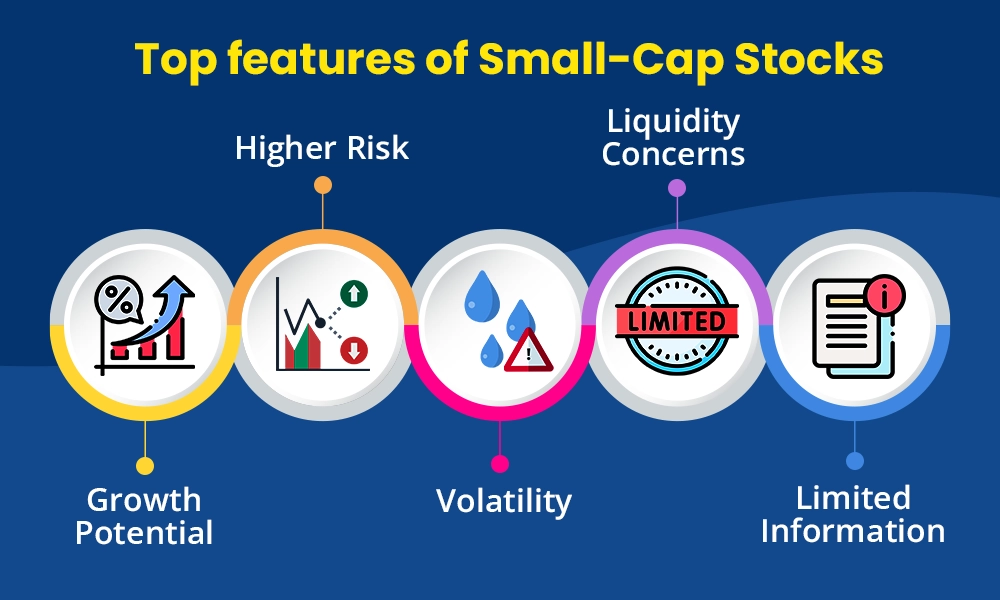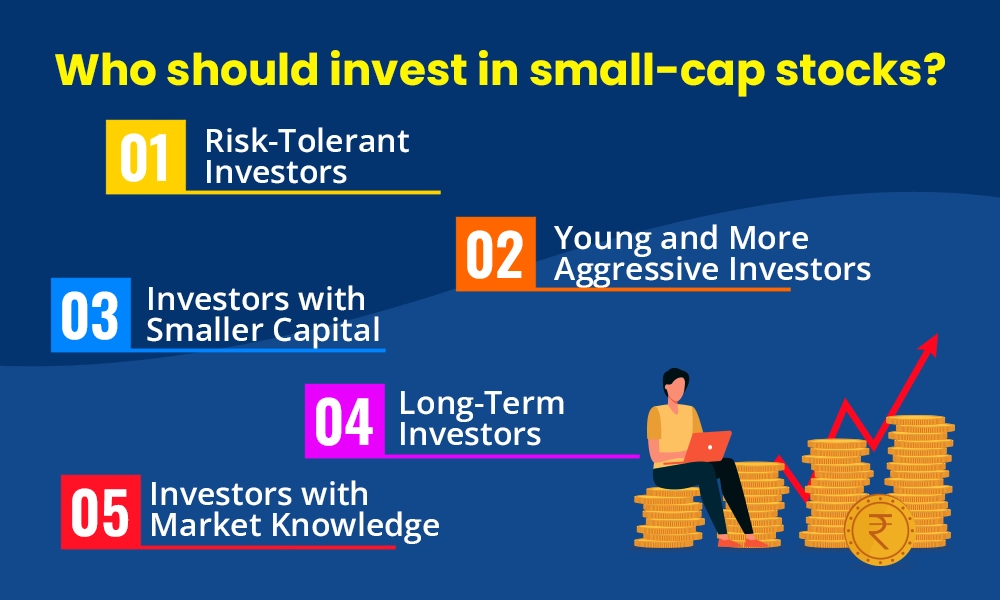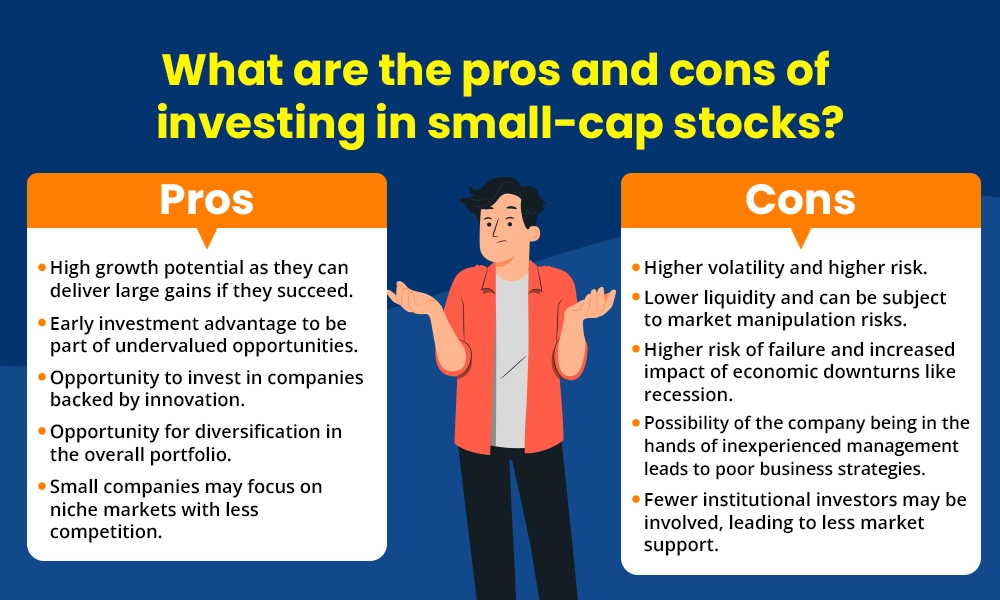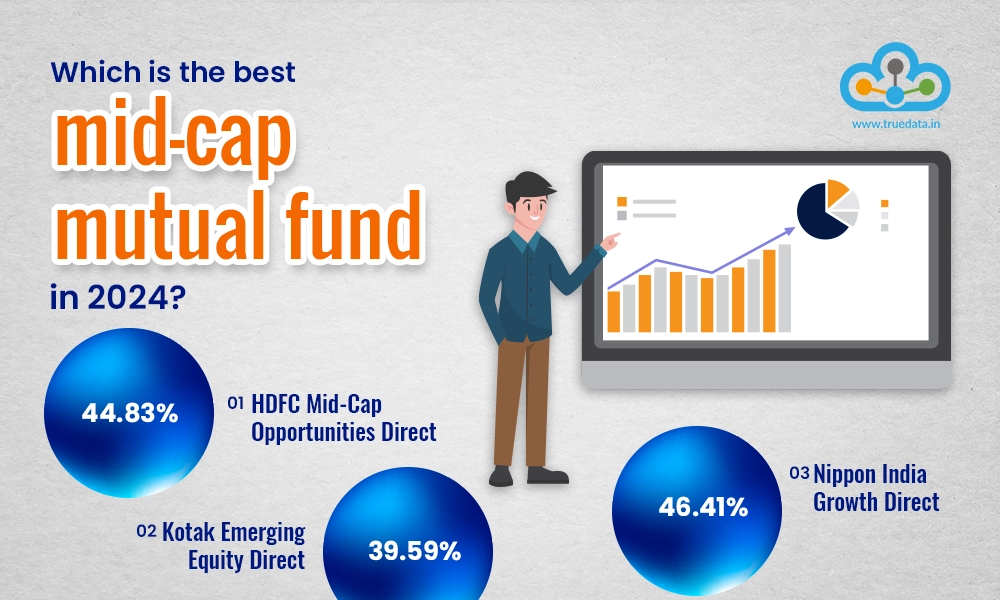
Investing in stock markets is most profitable when you find hidden gems that can potentially yield multifold returns in the long run. Consider stocks like Eicher Motors, Kotak Mahindra Bank or Sun Pharma, which are large caps today but were relatively smaller companies when they were launched in the market. The percentage increase in their share price from their IPO is beyond any investor's wildest dreams. Similarly, many small-cap stocks today have the potential to grow into large caps in the coming years and dominate the stock markets. Investing in such stocks can help create generational wealth and contribute to achieving one’s financial goals. So here is all you need to know about small-cap stocks and how to find these gems to maximise the profit potential of your portfolio.
As per the SEBI classification of stocks, small-cap stocks are stocks ranking from 251st in terms of market capitalisation on the stock exchanges. These companies usually have a market capitalisation of less than Rs. 5000 crores and are considered to be in the early stages of growth and can offer high potential for returns coupled with a higher degree of risk as compared to mid-cap or large-cap stocks. Small-cap stocks can, thus, provide opportunities for investors seeking to identify promising companies before they expand and gain significant market value.

The top features of characteristics of small-cap stocks are highlighted below.
Growth Potential - These stocks often belong to companies that are in their early stages of growth. As a result, they have a higher potential for rapid expansion and higher returns compared to larger companies.
Higher Risk - Investing in small-cap stocks carries a higher risk because these companies might have less established business models or face more competition. However, with higher risk comes the possibility of higher returns if the company performs well.
Volatility - Small-cap stocks tend to be more volatile which means their prices can fluctuate sharply. This is due to their lower market liquidity and smaller scale of operations, making them more sensitive to market conditions.
Liquidity Concerns - These stocks often have lower trading volumes, which means it can be harder to buy or sell shares quickly without affecting the stock’s price. This lower liquidity may also lead to more price fluctuations.
Limited Information - Small-cap companies may not receive as much media coverage or research attention as large-cap stocks, making it harder for investors to get detailed insights. This lack of information can make investment decisions more challenging.
Small-cap stocks offer an excellent opportunity for investors to make quality investments that can yield more than market returns in the long term. These stocks can be a good addition to the portfolio for following investors.

Small-cap stocks are typically suitable for investors who can handle higher levels of risk. Since these stocks can be volatile, they are ideal for those who are willing to endure short-term market fluctuations for potentially higher long-term gains.
Small-cap stocks may appeal to younger investors or those with an aggressive investment style. Such investors often have time to recover from losses and can take advantage of the higher growth potential that small-cap companies offer to create a substantial corpus in the long term.
Investors with a long-term horizon should consider small-cap stocks. These companies ideally take time to grow and reach their potential, so patience is key to benefiting from their potential gains over several years.
One of the biggest disadvantages of small-caps is the limited information available on its financials. Therefore, investing in small-cap stocks requires more in-depth research and market understanding. Investors who are comfortable analysing companies and assessing risks can, thus, better identify promising small-cap opportunities and capitalise on them.
Small-cap stocks are often more affordable than large-cap stocks, making them accessible to investors with smaller budgets. Those who want to enter the stock market with limited capital can still buy shares and participate in the potential growth of these companies.
There are multiple small-cap stocks in the market today with many new IPOs coming out in this category too. So how do you know which are the quality stocks and which ones to avoid? This makes evaluating small-cap stocks based on their fundaments quite essential. Here are the top factors to consider while investing in small-cap stocks to ensure they are quality assets in the portfolio.
Company Fundamentals - Investors should examine the company’s financial health, including revenue, profit margins, and debt. Strong fundamentals signal stability and future growth.
Industry and Market Conditions - It is important to understand the industry the company operates as favourable market trends can boost the growth of small-cap stocks.
Management Team - Investors should research the company’s management. A strong, experienced leadership team often leads to better performance and success.
Liquidity - Investors should check the stock's trading volume. Low liquidity can make it difficult to quickly buy or sell shares, which might impact the ability to exit at the desired price.
Growth Potential - It is crucial to evaluate the company’s potential for growth. Small-cap companies are usually still developing, so investors should look for those with strong future prospects.
Valuation - Investors should ensure that the stock is not overpriced by using valuation metrics like the price-to-earnings (P/E) or price-to-book (P/B) ratios to compare with similar companies.
Diversification - Small-cap stocks should always be part of a diversified portfolio. Investors should not put all their money in these stocks but should balance them with other types of investments.
Time Horizon - Small-cap stocks are better suited for long-term investors. Investors should be prepared to hold onto these stocks for several years to see substantial returns.
External Factors - Investors need to monitor economic conditions, regulatory changes, and government policies in India that may affect the company or industry.
The pros and cons of investing in small-cap stocks are tabled below.

Small-cap stocks are dynamic investment options for investors with a potential for higher returns albeit with higher risk and higher volatility. Investment in quality small-cap stocks can provide more than market returns in the long term, making it instrumental in wealth creation. However, given the higher risks of investing in small-cap stocks, it is important for investors to conduct thorough research on their target investments and have a robust yet diversified portfolio.
This article gives a brief insight into small-cap stocks and the risks and benefits of including them in an investment portfolio. Let us know your thoughts on investing in small-cap stocks or the top small-cap stocks that you have in your portfolio.
Till then Happy Reading!
Read More: Difference Between Large-Cap, Mid-Cap and Small-Cap Stocks - How to choose?

The volatility of the stock markets is one of the biggest deterrents for investo...

Like starting any new venture, the first step in stock investments is knowing t...

If you have even a remote interest in the share market, you would have heard th...